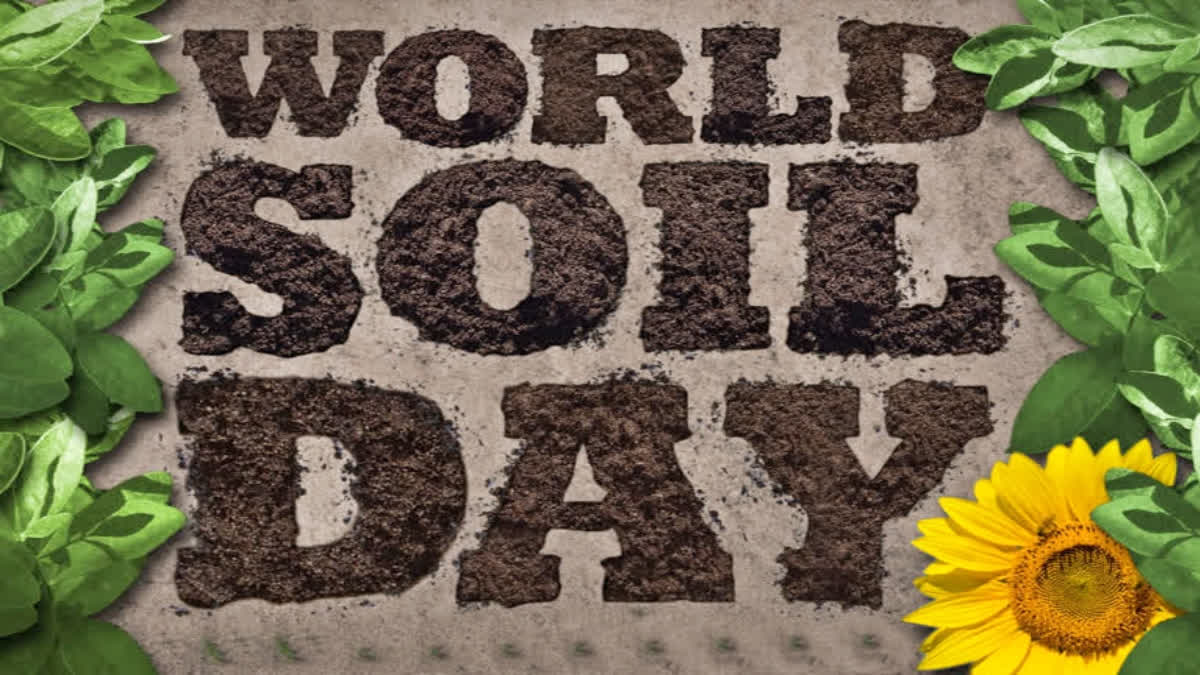Hyderabad: World Soil Day, observed annually on December 5 by the Food and Agriculture Organisation (FAO) of the United Nations, is a crucial global event aimed at creating awareness about the vital role soil plays in human well-being, food security and ecosystems.
Why December 5? The date corresponds to the birthday of the late HM King Bhumibol Adulyadej of Thailand, who officially sanctioned the event. Adulyadej was the King of Thailand. In 2016, this day was officially recognised in memory and with respect for this beloved monarch, who passed away in October 2016, after seven decades as head of state.
History: The formal establishment of World Soil Day was initiated under the leadership of the Kingdom of Thailand, with the support of FAO and within the framework of the Global Soil Partnership. The FAO Conference officially endorsed World Soil Day in June 2013, and it was subsequently adopted by the 68th UN General Assembly in December 2013.
What is Soil erosion? Soil erosion, identified as the primary threat to the planet's soils, poses a serious risk by washing away highly fertile topsoil. The consequence of this erosion is a direct threat to the future of food production, as soil is the foundation for our sustenance, providing not only food but also shelter and clothing. Approximately 95% of our food is directly or indirectly produced on soils, showcasing their indispensable role in supporting human life.
The theme for World Soil Day 2023: The theme for World Soil Day 2023, 'Soil and Water, a Source of Life,' emphasises the interdependence of soil and water as essential resources for sustaining life on Earth. Recognising the pivotal role of soil and water in food production, ecosystems, and human well-being, the theme encourages proactive measures to protect these resources for future generations.
Soil deterioration: The current state of soil deterioration is alarming, with the loss of valuable nutrients being a significant concern. The decline in soil fertility over the past 70 years has led to a reduction in the nutritional content of food. This has contributed to the global issue of micronutrient malnutrition, affecting around 2 billion people worldwide and is often referred to as hidden hunger.
Nutrient cycle: Nutrient cycling, driven by soil species, is vital in maintaining soil health and supporting plant growth. Soil organisms contribute to carbon storage, minimize greenhouse gas emissions, and play a crucial role in nutrient acquisition by vegetation. These intricate processes are essential for sustaining healthy agricultural systems and, consequently, global food security.
Key facts about soil: The soil is known for its living nature, comprising over 25% of the world's biodiversity. Soil organisms, though largely unknown, play a crucial role in carbon storage and contribute to the nutritional value of food. Earthworms, for example, play a significant role in soil health by ingesting soil and facilitating the cycling of nutrients.
Soil and water: The interconnectedness of soil and water resources is emphasised as essential for sustaining life. Soil erosion and compaction negatively impact the ability of soil to store, drain, and filter water, increasing the risk of floods, landslides, and sand/dust storms. Rainfed and irrigated agriculture systems, which contribute significantly to global food production, depend on effective soil moisture management practices.
Integrated management of soil and water resources is crucial for maintaining their health and quality. Sustainable soil management practices enhance water availability for agriculture, regulate water retention, and contribute to sustainable agricultural practices. Addressing water scarcity, promoting efficient water use, and controlling soil salinisation are integral components of sustainable resource management.
Improper soil and water management practices have far-reaching consequences, affecting soil erosion, soil biodiversity, fertility, and water quality. The mismanagement of pesticides and fertilisers poses risks to human health and ecosystems. Rising sea levels contribute to land loss, increasing the risk of soil salinisation, and negatively impacting agricultural productivity.
Soil and water conservation also play a pivotal role in climate change mitigation and adaptation. Improved soil and water management enhance the land's capacity to withstand extreme climate events, while healthy soils act as a carbon sink, contributing to both climate change adaptation and mitigation efforts.
Read More



